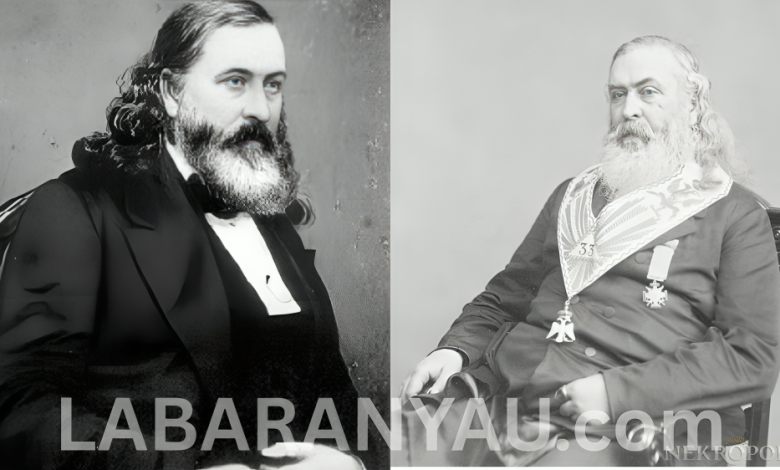
Albert Pike Biography
Albert Pike was born on December 29, 1809, in Boston, Massachusetts, and died on April 2, 1891, in Washington, D.C.
He was an American lawyer, writer, poet, soldier, and Freemason, best known for his deep involvement in Freemasonry and his authorship of Morals and Dogma (1871).
Pike moved to Arkansas in the early 1830s, where he became a newspaper editor and successful lawyer.
During the Mexican-American War (1846–1848), he served as a troop commander and later joined the Confederate Army in 1861 as a Brigadier General, commanding Native American troops at the Battle of Pea Ridge (1862) before resigning amid controversies.
He joined the Scottish Rite of Freemasonry in 1850, rising to become Sovereign Grand Commander in 1859, a position he held until his death.
A prolific scholar, he was fluent in several ancient and modern languages and wrote extensively on philosophy, religion, and symbolism.
Although his legacy is significant in Masonic circles, his Confederate ties and alleged racist views have sparked criticism, culminating in the removal of his statue in Washington, D.C., in June 2020.
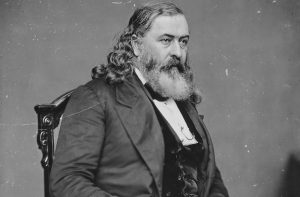
Albert Pike Wikipedia
| Field | Details |
|---|---|
| Full Name | Albert Pike |
| Date of Birth | December 29, 1809 |
| Place of Birth | Boston, Massachusetts, United States |
| Date of Death | April 2, 1891 |
| Place of Death | Washington, D.C., United States |
| Age at Death | 81 years |
| Nationality | American |
| Occupations | Lawyer, Journalist, Confederate General, Freemason, Writer |
| Known For | Morals and Dogma, Masonic Leadership |
| Languages Known | Latin, Greek, Hebrew, Sanskrit, French, German, English |
| Military Rank | Brigadier General (Confederate Army) |
| Years Active | 1830s–1891 |
| Spouse | Mary Ann Hamilton (m. 1834–1859) |
| Children | Several (exact number varies by source) |
| Major Affiliation | Scottish Rite of Freemasonry, Southern Jurisdiction |
| Famous Work | Morals and Dogma of the Ancient and Accepted Scottish Rite (1871) |
| Resting Place | House of the Temple, Washington, D.C. |
| Controversies | Confederate ties, alleged racism, KKK rumors |
| Statue Removed | June 19, 2020 (Washington, D.C.) |
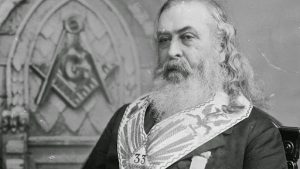
Albert Pike Early Life and Education
Albert Pike was born on December 29, 1809, in Boston, Massachusetts, into a modest working-class family. From a young age, he showed exceptional intellectual ability.
He attended local schools and soon distinguished himself as a gifted student.
He successfully passed the entrance examination for Harvard University, but due to financial constraints, he could not afford the tuition.
Instead of attending college, Pike chose the path of self-education, mastering a wide range of subjects including Latin, Greek, Sanskrit, Hebrew, and French.
In his early twenties, he worked as a schoolteacher in various towns across Massachusetts and later ventured westward, traveling through Missouri and New Mexico, before finally settling in Arkansas in the early 1830s.
There, his pursuit of knowledge and passion for literature and law laid the foundation for his future as a lawyer, journalist, and philosopher.
Check Out: Randy Jackson Biography, Early Life, American Idol, Personal Life, Weight Loss, Net Worth, Instagram
Albert Pike Move to the South and Career Beginnings
In pursuit of adventure and opportunity, Albert Pike left his native Boston in the early 1830s and journeyed southwest across the United States, eventually settling in Arkansas around 1833.
He initially supported himself by teaching school in various towns before turning his attention to journalism.
He began writing articles and poetry for local publications, and soon joined the staff of the Arkansas Advocate, a newspaper in Little Rock, where his articulate writing and strong opinions gained attention.
In time, he became editor and owner of the paper.
Pike’s involvement in political and social issues through journalism earned him regional recognition, and his interest in legal matters led him to study law independently.
In 1837, he passed the bar and established himself as a successful attorney, practicing both civil and criminal law.
His sharp legal mind and oratory skills made him one of the most respected lawyers in the Arkansas Territory.
Pike also began writing poetry and essays, showcasing his deep knowledge of classical literature and languages, laying the foundation for his future as a prominent intellectual and author.
This phase of his life, his move to the South, work in journalism, and entry into law, marked the beginning of a multifaceted career that would extend into military service, Freemasonry, and philosophical writing.
Albert Pike Military Career
Albert Pike’s military career was shaped by two major conflicts in American history: the Mexican-American War (1846–1848) and the American Civil War (1861–1865).
During the Mexican-American War, Pike served as a captain in a cavalry unit raised in Arkansas.
Although he saw limited combat, he demonstrated leadership and organizational skills, which helped build his military reputation.
After the war, he returned to civilian life and resumed his legal and literary activities.
His most significant and controversial military involvement came during the American Civil War.
In 1861, Pike aligned himself with the Confederacy and was appointed as a Brigadier General in the Confederate Army.
He was given the task of negotiating treaties with Native American tribes in Indian Territory (present-day Oklahoma), many of whom sided with the Confederacy due to promises of autonomy and protection.
Pike successfully raised and commanded a brigade of Native American soldiers, primarily Cherokee, Choctaw, and Chickasaw troops.
He led these forces into battle at the Battle of Pea Ridge in March 1862, one of the largest engagements west of the Mississippi River.
Although his troops fought bravely, their unconventional methods and alleged mistreatment of Union soldiers drew criticism.
Following the battle, Pike came under fire from Confederate leaders for poor discipline among his troops, financial mismanagement, and failing to coordinate with other Confederate units.
These tensions led to his resignation from the Confederate Army in July 1862.
He was later arrested by Confederate authorities but was eventually released.
After the war, Pike was briefly imprisoned by Union forces for his role in the rebellion but was pardoned by President Andrew Johnson in 1866.
While his Civil War service was relatively short and fraught with controversy, it added another complex layer to his legacy as a Confederate general, lawyer, and Freemason.
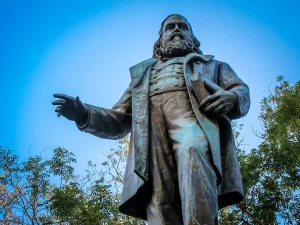
Albert Pike and Freemasonry
Albert Pike is best known for his monumental influence on Freemasonry, particularly within the Scottish Rite, Southern Jurisdiction of the United States.
He joined the fraternity in 1850, becoming a 32° Scottish Rite Mason shortly after.
His exceptional intellect, mastery of ancient languages, and passion for philosophy quickly distinguished him among his peers.
In 1859, Pike was elected as the Sovereign Grand Commander of the Scottish Rite, Southern Jurisdiction, a position he would hold until he died in 1891, over three decades of leadership.
During this time, he undertook a complete revision and systematization of the Scottish Rite rituals.
He also translated and incorporated teachings from various philosophical, religious, and esoteric traditions into Masonic thought.
His most famous work, Morals and Dogma of the Ancient and Accepted Scottish Rite of Freemasonry, published in 1871, is a complex and deeply philosophical exploration of the meanings behind the degrees of the Scottish Rite.
The book is not an official Masonic ritual, but rather Pike’s interpretation of the degrees, filled with references to Kabbalah, Gnosticism, Hermeticism, and classical philosophy.
For decades, it was issued to new members of the Scottish Rite.
Pike’s influence extended beyond writing.
He helped organize and stabilize the Southern Jurisdiction during a time of national upheaval, and he established Washington, D.C., as its headquarters, where the House of the Temple still stands today. His remains are interred there.
Despite his lasting contributions, Pike’s Masonic legacy is not without controversy.
Critics point to his Confederate ties and allegations of racist ideologies, though many Masons continue to revere him for his intellectual depth and dedication to the craft.
Albert Pike: Writing and Philosophy
Albert Pike was a prolific writer, philosopher, and linguist whose works spanned law, literature, religion, ancient history, and Masonic philosophy.
His writings reflected an extraordinary intellect, rooted in deep knowledge of classical texts, ancient languages, and comparative religion.
Pike was fluent in Latin, Greek, Hebrew, Sanskrit, French, and German, among others.
This allowed him to access original texts of religious and mystical traditions, which he studied extensively and incorporated into his work, especially in his Freemasonic writings.
His most famous and influential book, Morals and Dogma of the Ancient and Accepted Scottish Rite of Freemasonry (published in 1871), is a cornerstone of Masonic philosophy.
The book explores the deeper meanings of the 32 degrees of the Scottish Rite, interpreting them through the lens of philosophy, mythology, religion, mysticism, and symbolism.
Though not an official ritual book, it was issued to initiates of the Scottish Rite for over a century and remains widely studied among Freemasons.
In Morals and Dogma, Pike emphasized:
Moral development and self-mastery
The universality of truth in all religions
The pursuit of intellectual and spiritual enlightenment
The use of allegory and symbol as teaching tools
Beyond Freemasonry, Pike also wrote legal texts, political essays, poetry, and linguistic studies.
His poetry often reflected themes of classical beauty, nature, and introspection, while his legal and political writings showed his commitment to states’ rights, Southern nationalism, and at times, controversial racial views.
Other Notable Works by Albert Pike:
Indo-Aryan Deities and Worship
Lectures of the Arya
Various translations and commentaries on religious texts
Pike’s philosophy was shaped by a belief in universal truths found across cultures and spiritual systems.
He was heavily influenced by Neoplatonism, Gnosticism, Hermeticism, and Kabbalah, often weaving them together in his explanations of Masonic rituals.
While many admire Pike for his intellectual brilliance and dedication to Freemasonry, his legacy is complicated by his Confederate past and his use of elitist and sometimes exclusionary language in his writings.
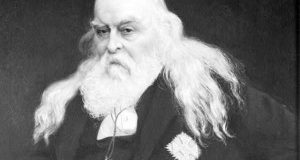
Albert Pike Later Life and Death
In his later years, Albert Pike dedicated himself almost entirely to Freemasonry, scholarship, and writing.
After the Civil War, where he had served as a Confederate general, Pike was arrested for his role in the rebellion but was pardoned in 1866 by President Andrew Johnson.
He then moved to Washington, D.C., where he became a central figure in American Freemasonry.
As Sovereign Grand Commander of the Scottish Rite, Southern Jurisdiction, Pike worked tirelessly to revise Masonic rituals, translate esoteric texts, and expand the influence of the fraternity.
His home and office in Washington became hubs of philosophical thought, and he continued publishing commentaries, lectures, and interpretations on ancient wisdom and Masonic teachings.
Despite his contributions to intellectual and fraternal life, Pike became increasingly reclusive, preferring to spend time surrounded by books and manuscripts.
He was regarded as an eccentric but brilliant figure, and his deep commitment to Masonry earned him lasting admiration within the organization.
Albert Pike died on April 2, 1891, at the age of 81, in Washington, D.C. Initially buried at Oak Hill Cemetery, his body was later reinterred in 1944 at the House of the Temple, the headquarters of the Scottish Rite, Southern Jurisdiction, in Washington, where his remains lie in honor to this day.
Though respected in Masonic circles, Pike’s Confederate affiliations and controversial racial views have led to public reexaminations of his legacy.
In June 2020, amid widespread protests, his statue in Washington, D.C., was toppled and removed, reflecting the ongoing debate over historical memory and the complex nature of his life.
Albert Pike Legacy
Albert Pike left behind a complex and controversial legacy that continues to spark debate more than a century after his death.
He is remembered primarily for his profound influence on Freemasonry, particularly the Scottish Rite, Southern Jurisdiction, where his intellectual and philosophical leadership helped shape the structure, rituals, and teachings of the order.
His magnum opus, Morals and Dogma (1871), remains one of the most studied and debated Masonic texts, revered by some for its depth and condemned by others for its esotericism and elitism.
Pike’s legacy as a scholar, linguist, and philosopher is equally significant.
His mastery of ancient languages and religious traditions allowed him to interpret and synthesize vast bodies of knowledge, which he incorporated into his Masonic teachings.
He is still viewed as a visionary thinker within Masonic and esoteric circles.
However, Pike’s legacy is also deeply controversial.
As a Confederate general, he fought for a cause that defended slavery, and though he later distanced himself from the Confederacy, his alleged racist views and support for Southern nationalism have made him a divisive figure.
In modern times, especially during movements to reevaluate monuments and historical figures, Pike has come under intense scrutiny.
The only outdoor statue in Washington, D.C., honoring a Confederate general was that of Albert Pike.
Though the statue commemorated him as a Mason, not a soldier, it was toppled by protestors on June 19, 2020, during the George Floyd protests, as part of a broader movement against symbols of racial oppression.
Despite this, within Freemasonry, Pike remains one of its most influential and venerated intellectual figures.
His name is memorialized in Masonic buildings, writings, and traditions, and his works are still read, taught, and analyzed by Masons worldwide.
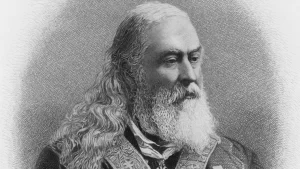
Albert Pike Personal Life
Albert Pike married Mary Ann Hamilton in 1834, shortly after settling in Arkansas.
The couple had several children together, though records vary on the exact number; some sources cite four to seven children.
Despite his often stern and scholarly public image, Pike was described by contemporaries as a devoted husband and father who cherished family life, though he spent long periods away from home due to his military, legal, and Masonic commitments.
Pike was known to be eccentric, reclusive, and highly disciplined.
He maintained an extensive personal library of over 3,000 books, many in ancient or foreign languages, which he read regularly.
He enjoyed solitude, classical music, writing poetry, and translating ancient texts.
His home in Washington, D.C., was more like a study than a residence, filled with manuscripts, Masonic regalia, and rare books.
Spiritually, Pike was deeply interested in religion and mysticism, but he rejected organized dogma.
Although raised in a Christian household, he developed a philosophical belief system that blended elements of Gnosticism, Kabbalah, Hermeticism, and Neoplatonism, which is reflected heavily in his writings.
Later in life, he struggled with health issues, likely exacerbated by years of intense reading, writing, and lack of rest.
He lived modestly, despite his intellectual fame, and remained unmarried after his wife died in 1859.
Albert Pike died on April 2, 1891, at the age of 81, and was remembered by those close to him as a man of immense intellect, rigid discipline, and deep introspection.
Albert Pike Net Worth
Estimating Albert Pike’s net worth in modern financial terms is challenging, as he lived in the 19th century (1809–1891) and did not accumulate wealth in the way celebrities or business figures are measured today.
He was never a wealthy man by monetary standards, and his life was more dedicated to scholarship, writing, law, and Freemasonry than to financial gain.
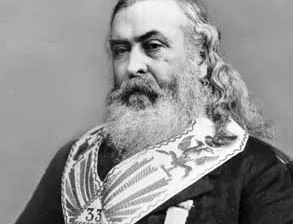
Controversies Surrounding Albert Pike
Albert Pike, though widely respected in Masonic circles, remains a controversial historical figure, primarily due to his Confederate ties, alleged racist views, and misattributed associations. Below are the key controversies linked to his name:
Summary
While Albert Pike is admired in Masonic and intellectual circles for his philosophical writings, leadership, and scholarship, he is also condemned for his Confederate past, alleged racism, and the murky legends surrounding his post-war affiliations.
His legacy remains deeply divisive, viewed as either a visionary philosopher or a symbol of Southern elitism and white supremacy, depending on the perspective.
FAQs
1: Who was Albert Pike?
Albert Pike was an American attorney, Confederate general, poet, writer, and a prominent Freemason, best known for his influential book Morals and Dogma and his leadership in the Scottish Rite of Freemasonry.
2: When and where was Albert Pike born?
He was born on December 29, 1809, in Boston, Massachusetts, United States.
3: What is Albert Pike famous for in Freemasonry?
Pike is renowned for his work Morals and Dogma of the Ancient and Accepted Scottish Rite (1871), a philosophical and theological exposition of Masonic beliefs. He served as Sovereign Grand Commander of the Scottish Rite’s Southern Jurisdiction for 32 years.
4: What was Albert Pike’s role in the American Civil War?
Pike served as a Brigadier General in the Confederate Army, commanding Native American troops in the Indian Territory (now Oklahoma). His military career was brief and controversial.
5: Was Albert Pike involved with the Ku Klux Klan?
There is no verified historical evidence proving Pike was a member or leader of the KKK, though rumors and speculation persist. Historians widely dispute the claim.
6: What is Morals and Dogma about?
It is a comprehensive exploration of Masonic philosophy, symbolisms, rituals, and moral teachings. Though complex, it remains a foundational text in the Scottish Rite.
7: Why was Albert Pike’s statue removed?
His statue in Washington, D.C., was torn down by protestors on June 19, 2020, during the George Floyd protests, due to his Confederate ties and allegations of racism.
8: Did Albert Pike hold political office?
No, Pike never held elected political office, though he was a prominent legal, military, and fraternal figure in the 19th-century American South.
9: What languages did Albert Pike speak or study?
Pike was a linguistic polymath, proficient in Latin, Greek, Hebrew, Sanskrit, French, and German, among others.
10: Where is Albert Pike buried?
He is entombed at the House of the Temple, headquarters of the Scottish Rite in Washington, D.C.
In Conclusion
Albert Pike was a towering intellectual and influential figure of the 19th century, whose legacy spans law, literature, military service, and most notably, Freemasonry.
As the long-serving Sovereign Grand Commander of the Scottish Rite’s Southern Jurisdiction, Pike helped shape the philosophical foundations of modern Freemasonry through his seminal work Morals and Dogma.
Despite his accomplishments, his association with the Confederacy and unverified claims linking him to the Ku Klux Klan have made him a controversial historical figure.
Today, Pike remains a subject of both admiration and debate, emblematic of the complex and often conflicted legacy of America’s past.
Discover more from Labaran Yau
Subscribe to get the latest posts sent to your email.



















